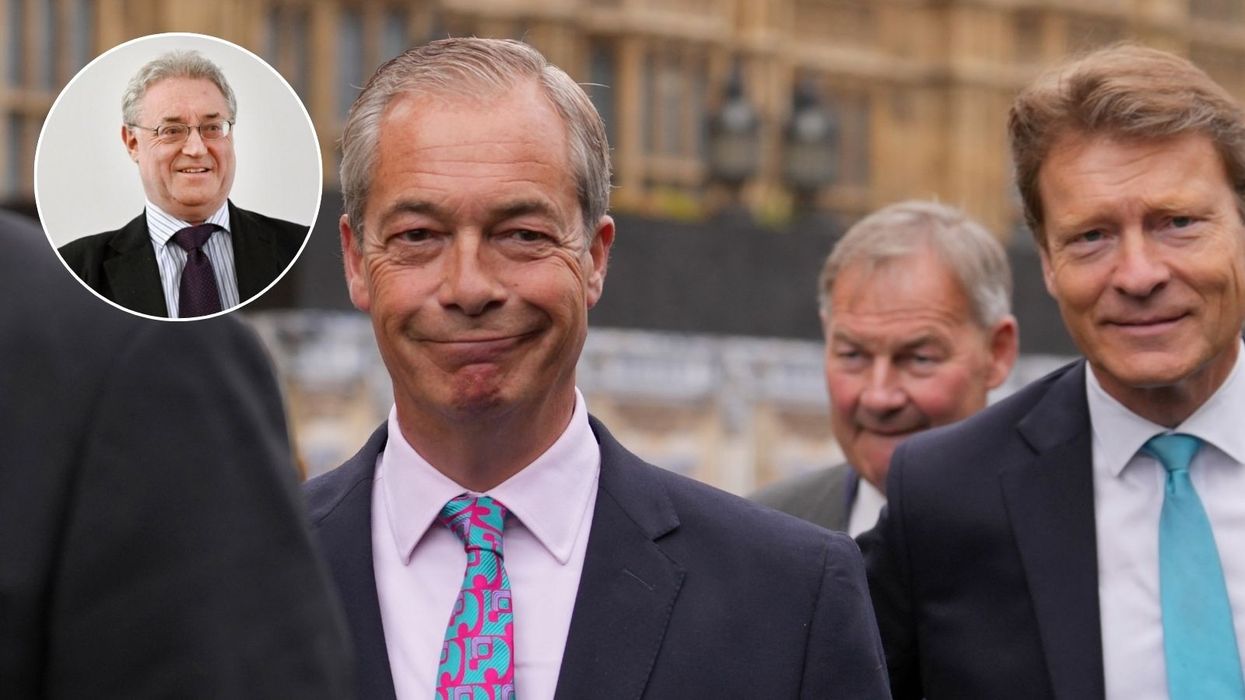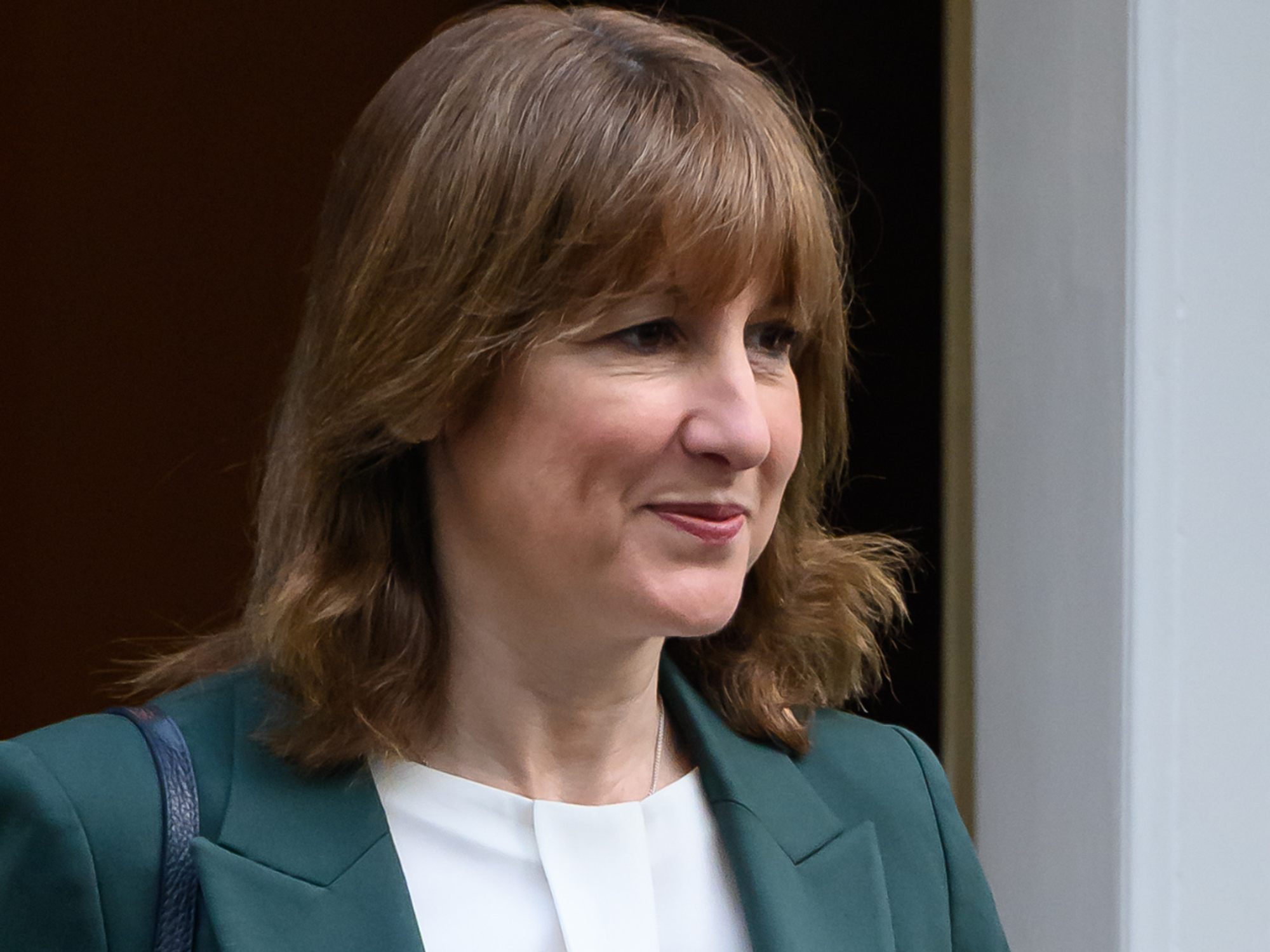'The Conservative Party is finished and the era of Reform UK is only just beginning,' says Gary Mond

The era of Reform UK is only just beginning, according to Gary Mond
|PA
Gary Mond is a businessman in the financial and legal training sector and is a regular contributor to GB News
Don't Miss
Most Read
Across the political spectrum, one of the best examples of the term “weasel words”, an expression which applies to statements that are ambiguous or misleading, is when any politician calls for “unity”.
Unity is only possible when the constituent parts of an organisation broadly have similar beliefs and objectives. In the Conservative Party it patently isn’t.
We have heard some of the candidates in the current Conservative leadership election call for unity. Achieving that is impossible, unless one of the two major viewpoints in the Tory party (either the Thatcherites who support lower taxes, slashing public expenditure and free markets, or the One Nation advocates who do not) is completely extinguished.
Yet why was it possible in the past? The answer is that the Conservative Party was either in power, or believed it had a very good chance of getting back into power soon, and power is an exceptional aphrodisiac.
That was true even after the 1997 Blair landslide. For a 40-year period, from the early development of support for free markets under Thatcher’s leadership in the 1970s until the Brexit referendum in 2016, this principle kept the Conservatives largely united.
A good example of this was the pitifully small number of Conservative MPs who rebelled against the Maastricht Treaty in 1992.
Today that prospect of power has gone.
This is not just because of the huge Parliamentary Labour majority.
The compelling and growing strength of Reform UK makes the chances of the Conservatives becoming a victorious force in politics in the next few years highly improbable.
Should a One Nation supporter be elected leader, there will be defections from the Conservative Party of both elected politicians and members.
Should the leader be a Thatcherite, I foresee, over time, defections to the Liberal Democrats from the left of the party. The Conservative Party is effectively finished.
Turning to Reform UK, it managed to achieve over four million votes at the general election in July on a shoestring budget and with very limited organisational infrastructure.
Those who currently run Reform UK are going to ensure that this is all going to be put right and, whatever the development of political issues might be in the coming few years, the Reform UK vote can only grow.
The Conservative Party will, to a lesser and lesser extent, be seen as the party of refuge for those who are angry with the Labour government, as memories of the failings of the past Conservative government are fresh in peoples’ minds and will remain so for years to come.
Also, Reform UK does well, possibly as well as Labour, in the youth vote, where the Conservative Party’s reputation is a laughing stock.
Yet perhaps Reforms UK’s greatest strength today is its potential to increase its vote.
The general election turnout was below 60 per cent.
As anger mounts in the population regarding Labour’s horrendous treatment of pensioners, private sector workers, the business community and others, those who did not vote last time (unenthused by the Conservatives but unwilling to support anyone else) will take a fresh look at Reform UK.
Additionally, the latter’s strength in the youth vote will be relevant as five years will have passed at the next general election and a new generation of younger people will be voting, along with part of the Conservative Party-leaning older generation no longer being with us.
Furthermore, there is potential for Reform UK to win votes directly from Labour, a trend which is much harder for the Conservatives owing to their failure in government.
MORE FROM GBN MEMBERSHIP:
- Immigration didn't just happen - it's a deliberate policy and Labour will NEVER get a grip! - Sally-Ann Hart
- Tory members revealed why they think they suffered 'worst-ever' election loss - it's a far-cry from British public's opinion
- Four ways Tories could end up paving way for Reform - Kwasi Kwarteng
Finally, there is a question of Reform UK’s leadership. To many, Nigel Farage is a marmite-type figure – one either loves him or hates him.
The same was true of Margaret Thatcher.
Hundreds of thousands, if not millions, of people who actively disliked her voted for her. Why? Because the political implications of their decisions were far more important than the narrow issue of popularity.
The same will apply in future to Nigel Farage and he will gain votes from people who don’t like him because they nevertheless applaud his political stance.
The conclusion must be that the future is bright for Reform UK, and exceptionally bleak for the Conservative Party.










